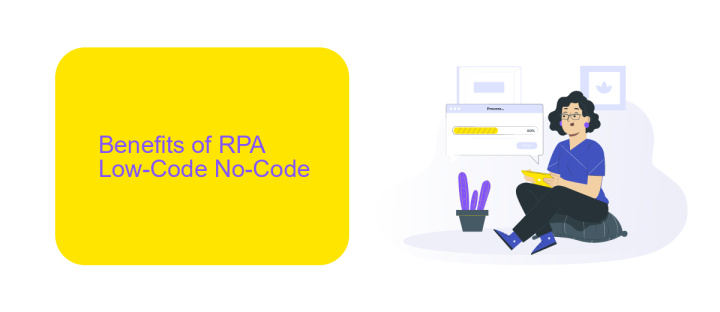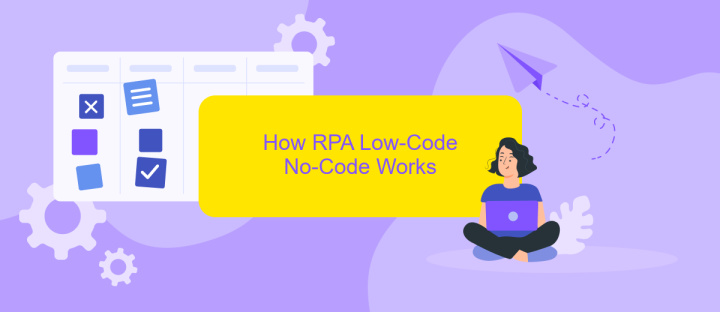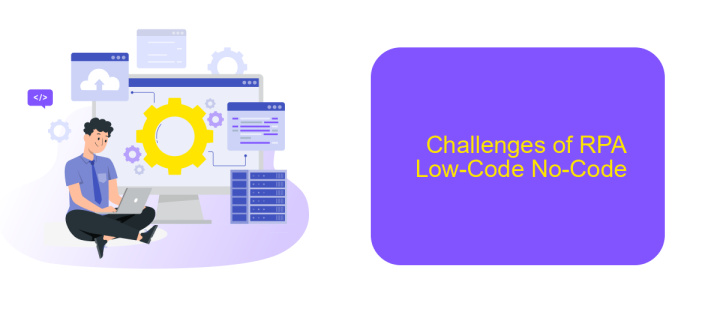RPA Low-Code No-Code
Robotic Process Automation (RPA) combined with Low-Code/No-Code (LCNC) platforms is revolutionizing the way businesses operate. By enabling non-technical users to automate complex workflows with minimal coding, these technologies streamline processes, reduce costs, and enhance efficiency. This article explores the synergy between RPA and LCNC, highlighting their benefits, use cases, and future potential in various industries.
Introduction
Robotic Process Automation (RPA) combined with Low-Code No-Code platforms is revolutionizing the way businesses approach automation. These technologies empower organizations to automate complex processes without the need for extensive coding knowledge. By leveraging RPA and Low-Code No-Code solutions, companies can significantly reduce development time and costs.
- Streamlined automation of repetitive tasks
- Enhanced scalability and flexibility
- Reduced dependency on IT departments
- Faster deployment of solutions
One of the key advantages of using Low-Code No-Code platforms is the ease of integrating various applications and services. Tools like ApiX-Drive facilitate seamless integration, enabling businesses to connect their software systems effortlessly. This integration capability is crucial for creating unified workflows and ensuring data consistency across platforms. Overall, the combination of RPA and Low-Code No-Code technologies is transforming business operations, making automation more accessible and efficient.
Benefits of RPA Low-Code No-Code

RPA Low-Code No-Code platforms offer significant benefits for businesses by enabling rapid automation of processes without the need for extensive coding knowledge. This democratization of automation allows non-technical employees to create and manage automated workflows, leading to increased efficiency and reduced operational costs. By simplifying the development process, these platforms accelerate time-to-market for new solutions and empower organizations to quickly adapt to changing business needs.
Moreover, the integration capabilities of RPA Low-Code No-Code platforms enhance their versatility. Tools like ApiX-Drive facilitate seamless connections between various applications and systems, ensuring smooth data flow and operational coherence. This ease of integration not only improves productivity but also enables businesses to leverage existing technologies more effectively. Consequently, companies can achieve greater agility and scalability, driving innovation and maintaining a competitive edge in the market.
How RPA Low-Code No-Code Works

RPA Low-Code No-Code platforms enable users to automate processes without needing extensive programming knowledge. These tools offer intuitive interfaces and drag-and-drop functionalities, making automation accessible to a broader audience.
- Identify the process to automate: Determine repetitive tasks that can benefit from automation.
- Design the workflow: Use visual tools to map out the process steps.
- Configure integrations: Utilize services like ApiX-Drive to connect various applications and streamline data flow.
- Test the automation: Run simulations to ensure the workflow performs as expected.
- Deploy and monitor: Implement the automation and continuously monitor its performance for improvements.
By following these steps, organizations can significantly enhance efficiency and reduce manual errors. The use of platforms like ApiX-Drive simplifies the integration of different systems, allowing seamless data transfer and communication between applications.
Challenges of RPA Low-Code No-Code

Implementing RPA Low-Code No-Code solutions presents several challenges that organizations must navigate to achieve optimal results. One of the primary issues is the potential for limited customization, as these platforms often cater to general use cases and may not address specific business needs.
Another significant challenge is the integration with existing systems and workflows. While low-code platforms promise ease of use, integrating them seamlessly with legacy systems can be complex and time-consuming. This is where services like ApiX-Drive can be invaluable, providing tools to facilitate smoother integrations.
- Limited customization options
- Complexity in integrating with legacy systems
- Potential security vulnerabilities
- Scalability concerns
Additionally, there are concerns about security and data privacy, as low-code platforms may not offer the same level of control and protection as traditional development methods. Scalability is another issue, as these solutions might struggle to handle increasing demands as the organization grows. Addressing these challenges requires careful planning and the selection of appropriate tools and platforms.
- Automate the work of an online store or landing
- Empower through integration
- Don't spend money on programmers and integrators
- Save time by automating routine tasks
Conclusion
In conclusion, RPA Low-Code No-Code solutions are revolutionizing the way businesses approach automation. These platforms empower non-technical users to create and deploy complex workflows with minimal coding knowledge, significantly reducing development time and costs. By democratizing automation, organizations can enhance productivity, streamline operations, and respond more swiftly to market demands.
Moreover, integrating services like ApiX-Drive further amplifies the capabilities of RPA Low-Code No-Code platforms. ApiX-Drive allows seamless integration between various applications and services, enabling businesses to automate data transfer and synchronize processes effortlessly. This synergy not only enhances operational efficiency but also ensures that organizations can leverage the full potential of their digital ecosystems. As the landscape of automation continues to evolve, embracing RPA Low-Code No-Code solutions, complemented by robust integration tools, will be essential for maintaining a competitive edge.
FAQ
What is RPA (Robotic Process Automation)?
How does Low-Code/No-Code RPA differ from traditional RPA?
Can Low-Code/No-Code RPA be integrated with existing systems?
What are the benefits of using Low-Code/No-Code RPA?
Is Low-Code/No-Code RPA secure?
Apix-Drive will help optimize business processes, save you from a lot of routine tasks and unnecessary costs for automation, attracting additional specialists. Try setting up a free test connection with ApiX-Drive and see for yourself. Now you have to think about where to invest the freed time and money!


